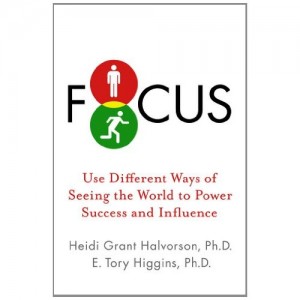- A link to a free one-hour video webinar, in which I’ll explain the key concepts of FOCUSand how you can use them to be happier and more successful in your own life.
- A downloadable PDF workbook to help you put the lessons of FOCUS into practice.
- A chance to win a copy of my new forthcoming e-book, The 8 Motivational Types: A Short Guide to Lighting a Fire Under Anyone – Including Yourself
